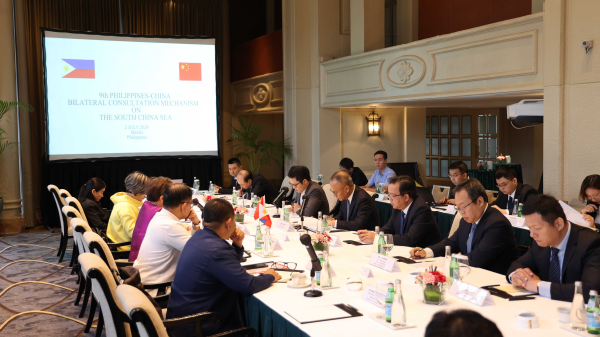The South China Sea (SCS) is a critical arena for marine fisheries, contributing significantly to the global fish catch and supporting millions of livelihoods in the region. Enhanced cooperation between China and ASEAN nations in this sector is essential for sustainable economic growth and regional stability. The importance of SCS fisheries extends beyond mere numbers, providing crucial protein sources for about 300 million people and sustaining countless fishing communities. This underscores the urgent need for collaborative efforts to ensure the longevity and health of these marine resources.
China has demonstrated a commitment to fisheries cooperation with its SCS neighbors through various initiatives. The country’s partnership with ASEAN in aquatic product trade reached an impressive $10.01 billion in 2022, highlighting the economic interdependence in this sector. Bilateral efforts, such as the joint marine fishery stocks enhancement program between China and Vietnam, have shown promising results.

However, the SCS fisheries face numerous challenges that demand collective action. Climate change, extreme weather events, overfishing, and habitat destruction threaten the sustainability of fish stocks. The migratory nature of many fish species in the SCS further complicates management efforts, emphasizing the need for a coordinated approach among all stakeholders. To fully leverage the advantages of cooperation, several key areas for enhanced collaboration are proposed:
- Establishing a SCS Marine Fisheries Science and Technology Cooperation and Exchange Center.
- Developing a comprehensive industrial chain cooperation framework for marine fisheries.
- Implementing joint conservation measures.
- Investing in sustainable aquaculture technologies.
- Enhancing monitoring and enforcement capabilities to combat illegal fishing.
- Promoting eco-friendly fishing practices and gear.
- Developing early warning systems for extreme weather events.
- Investing in coastal community development programs.
- Establishing a regional fund for fisheries research and conservation projects.
- Creating a platform for regular dialogue among stakeholders.
These initiatives align with broader regional goals, including the Belt and Road Blue Cooperation Initiative and support the fulfillment of cooperation obligations under UNCLOS.
Boosting China-ASEAN Growth: SCS Fisheries Cooperation represents a pathway to building a true “community with a shared future” for the South China Sea. The potential benefits extend far beyond immediate economic gains, contributing to food security, biodiversity conservation, and climate change mitigation.
However, realizing this vision requires overcoming political sensitivities and historical disputes. It calls for a commitment to prioritize shared interests over individual claims, and to view the SCS as a shared resource that demands collective stewardship.
As we move forward, it’s crucial to recognize that the health of the SCS ecosystem is inextricably linked to the prosperity and security of the entire region. By working together to nurture this vital “Blue Engine” of growth, China and ASEAN nations can set a global example of how cooperation in resource management can drive sustainable development and regional harmony.
The path ahead may be challenging, but the potential rewards a thriving blue economy, resilient coastal communities, and a healthy marine ecosystem make it a journey worth undertaking. It’s time for all stakeholders to cast their nets wide and work together to secure a sustainable future for South China Sea fisheries through Boosting China-ASEAN Growth: SCS Fisheries Cooperation.
Related Post:
China terms Pakistan as ‘special partner’ at 18th China-ASEAN Expo
Pakistan to participate in 18th China-ASEAN Expo, establish export pavilion

















